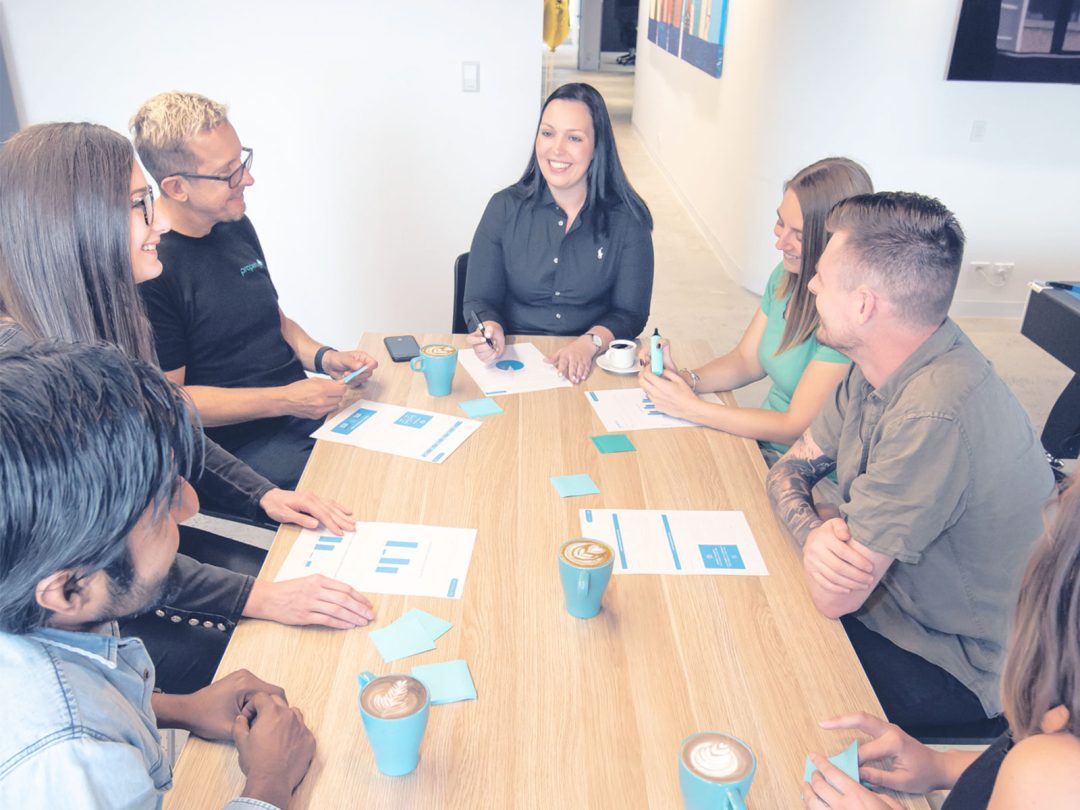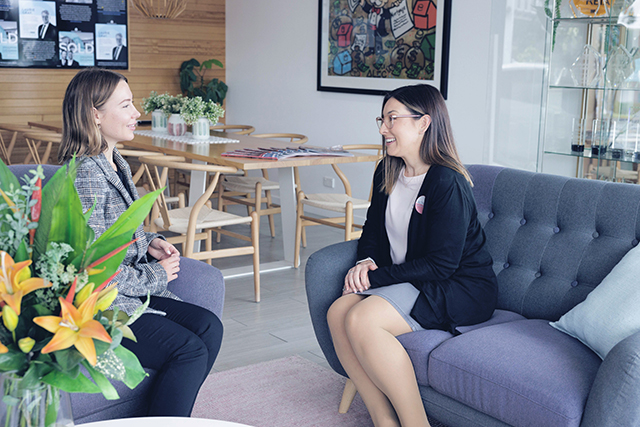December 29th, 2022
10 hacks to level up your copywriting game with minimal extra effort
Property Management
Property Management

Meetings can be a valuable way to collaborate, brainstorm and stay on track with goals. However, poorly run meetings can be unproductive, disengaging, and a waste of time. We’ve collected 10 tips to ensure your team is getting the most out of their meetings.
Nothing can drain the energy from a room quite like waiting around for attendees to roll on in, and starting meetings on time allows for ample time to cover all necessary topics and ensures that everyone has an equal opportunity to contribute and be heard. Punctuality sets the tone for the meeting and helps establish a culture of accountability and responsibility. By consistently starting meetings on time, participants are more likely to turn up on time and be fully engaged in the discussion.
Creating a reason for everyone to share at the start of the meeting paves the way for open communication and collaboration throughout the meeting. Our favourite is sharing a win for the week — not only does this set a positive tone, but it also gives motivation a boost.
According to Atlassian, “the happiest teams are forged in a ‘recognition-rich’ environment, where acknowledgment and appreciation flow freely up, down, and across hierarchies”.
Get inspired by our new “quick five” question series on TikTok featuring Property Management professionals reflecting on their recent wins, lessons to their younger selves, and what they love about their role, amongst other things.
Having the previous meeting’s minutes handy can help save time re-covering similar topics, or searching to find what was previously mentioned — particularly when checking in from previous meetings’ action plans. Effective meeting minutes help keep everyone on the same page, provide a summary for those who couldn’t attend, and a reference point to revisit topics discussed.
A great organisation system for meeting minutes is one that is easily accessible for all stakeholders, as well as searchable for quick reference — especially when referencing particular properties.

A Psychological Review study suggested that we’re not motivated by goals alone. In fact, once we’ve decided upon a goal, we’re more motivated — on a day-by-day basis — by the habits that we have set up to reach it, than by the goal itself.Regular team meetings are a great opportunity to review the daily habits and actions we are taking to stay on track with goals — whether it’s a habit stacking framework, as explored by James Clear in the bestselling book Atomic Habits, or more structured such as OKRs, as explored in a recent blog “How to set work goals that actually stick”.
Consider organising meetings in a way that will include everyone. This could include letting people own specific sections of the meeting or agenda items, or rotating through responsibilities each time you meet. This promotes engagement and is a great opportunity for individuals across all levels to contribute, and to develop a more comprehensive understanding of the different areas.
For example, one week your department head may report on jobs, pending quotes, and overdue items while a Property Officer reports on arrears, to then swap reporting responsibilities the following week.
One of my favourite phrases to use in a meeting is “How can we?” Encouraging brainstorming, collaboration, and innovation to develop solutions to everyday problems can be achieved by adding an extra item to the agenda: roadblocks and challenges.
For example, if a team has set a goal to generate more social content on the local area and businesses, but are struggling to find the time to get out of the office.
How can we include local business features in our typical day-to-day?
Remember the days when our teachers would roll in the tv on a rickety cabinet, play an episode of “Behind the scenes” or “This is your life?” Before they hit play, they would always give the instruction, “write down three things you took from this”. There’s a reason they did that!
Getting the most from a meeting often comes back to how present and engaged attendees are throughout it and it can be as simple as muting notifications, note-taking, or writing down relevant questions to follow up with.

With burnout blazing through the property management industry, the shift towards a more meaningful and balanced workplace is top of the agenda for both Property Managers and agency owners. Taking the time to reflect on your agency and team’s purpose and how the day-to-day contributes to the bigger picture is an important part of meaningful work and a sense of belonging. Connecting with the ‘why’ behind the purpose and ensuring everyone understands how their role contributes to this is essential for fostering meaningful contributions, and a sense of individual purpose within roles. Ashley M. Grice explains the power of purpose to push boundaries of innovation and bring clarity to every aspect of an organisation in TED talk The power of purpose in business.
Meetings are a great opportunity for individuals across all levels to contribute to the growth and development of the team. This can be as simple as discussing key takeaways from a conference attended, a new process hack that saves time, sharing an article or podcast relevant to the team, or catching up on PropertyMe’s monthly updates and feature releases. One way to ensure that everyone is engaged with and consistently training is to do it as a team and reflect together.
The end of the sit-down isn’t the end of the meeting. Drafting and distributing effective minutes promptly after a sit down ensures that people act on any assignments made at the meeting, any decisions made are confirmed, and can help the following one run on track, avoiding re-addressing previous topics. If two or three people volunteer to complete a task, responsibility can be unclear, so make sure just one person is clearly assigned assignments, to then coordinate any assistance required.
Let us know your thoughts by emailing [email protected]